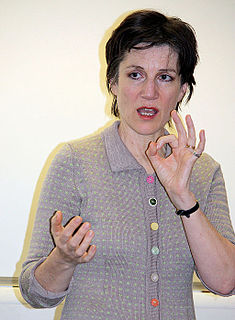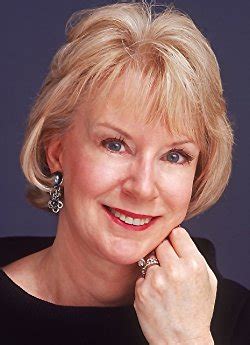A Quote by Marina Abramovic
I always sent my mother all these huge books I made. When my mother died, I was cleaning her cupboard, and these big books were only 20 pages long. She edited out, maybe burned, every single photograph where I'm naked.
Related Quotes
In my earliest of years, my mother was a huge force in my life. She was for all intents and purposes, a single parent. My father had abandoned us. He was an alcoholic and a physical abuser. My mother lived through that tyranny and made her living as a domestic worker. She was uneducated but she brought high principles and decent values into our existence, and she set lofty goals for herself and for her children. We were forever inspired by her strength and by her resistance to racism and to fascism.
The difficulty will be to keep her from learning too fast and too much. She is always sitting with her little nose burrowing into books. She doesn't read them, Miss Minchin; she gobbles them up as if she were a little wolf instead of a little girl. She is always starving for new books to gobble, and she wants grown-up books--great, big, fat ones--French and German as well as English--history and biography and poets, and all sorts of things. Drag her away from her books when she reads too much.
Sometimes we adopt certain beliefs when we're children and use them automatically when we become adults, without ever checking them out against reality. This brings to mind the story of the woman who always cut off the end of the turkey when she put it in the oven. Her daughter asked her why, and her mother responded, "I don't know. My mother always did it." Then she went and asked her mother, who said, "I don't know. My mother always did it." The she went and asked her grandmother, who said, "The oven wasn't big enough."
She had come to him to escape her mother's world, a world where all bodies were equal. She had come to him to make her body unique, irreplaceble. But he, too had drawn an equal sign between her and the rest of them: he kissed them all alike, stroked them all alike, made no, absolutely no distiction between Tereza's body and the other bodies. He sent her back to the world she tried to escape, sent to march naked with the other naked women
My mother has made choices in her life, as we all must, and she is at peace with them. I can see her peace. She did not cop out on herself. The benefits of her choices are massive-a long, stable marriage to a man she still calls her best friend; a family that has extended now into grandchildren who adore her; a certainty in her own strength. Maybe some things were sacrificed, and my dad made his sacrifices, too-but who amongst us lives without sacrifice?
Her [Eleanor Roosevelt] father was the love of her life. Her father always made her feel wanted, made her feel loved, where her mother made her feel, you know, unloved, judged harshly, never up to par. And she was her father's favorite, and her mother's unfavorite. So her father was the man that she went to for comfort in her imaginings.
The current publishing scene is extremely good for the big, popular books. They sell them brilliantly, market them and all that. It is not good for the little books. And really valuable books have been allowed to go out of print. In the old days, the publishers knew that these difficult books, the books that appeal only to a minority, were very productive in the long run. Because they're probably the books that will be read in the next generation.
My mother wanted to be a mother. That's the only thing she wanted from the bottom of her heart. She didn't want to be the number one actress - which she was - and she didn't want to be this great legend. All she wanted to be was a mother and she did but God took her away. So I always will empathise and sympathise with women.
My mother had a life-altering stroke when I was nineteen and she died when I was twenty-three. I'm now older than my mother when she died and my relationship with her has really changed over these many years. I continue to stay interested in her and I know her differently now. Losing my mother, losing dear friends, is now part of the fabric of my being alive. And the fabric keeps changing, which is interesting.






































